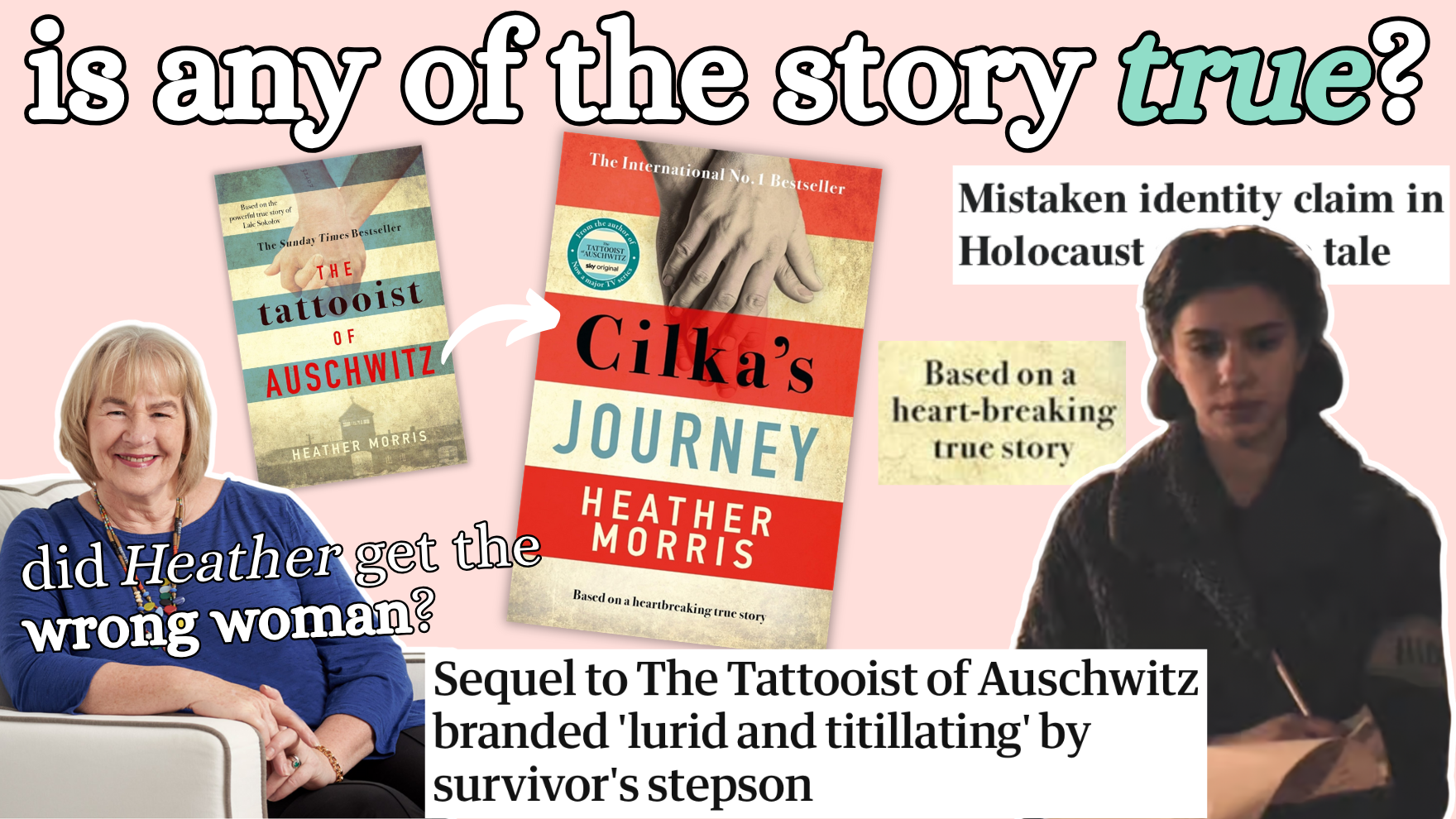Cilka’s Journey: The disastrous sequel to The Tattooist of Auschwitz

Cilka's Journey (2019) follows up Heather Morris's The Tattooist of Auschwitz (2018) with a story all about one of her most intriguing characters - Cilka Klein. Readers were desperate to know more about her tragic story, but it wasn't long before the novel sparked criticism and controversy. Cilka's real life family said the character in the book bore no resemblance to the woman they knew and they wanted nothing to do with the novel. Heather Morris claims to have done meticulous research in preparation for writing the book, but how much does that hold up under scrutiny? Is Cilka's Journey a respectful tribute to an under-known dark corner of history, or is it a blatant distortion of this traumatic past? And how should authors navigate the delicate line between imagination and fact when representing the lives of real people?
The follow-up to my TTOA video and the end of my short series about Heather Morris's books. (I really hope she and John Boyne don't think I have a personal vendetta against them - I promise I don't, they just happen to be some of the most sucessful authors in recent Holocaust literature!)
Quick reads
Kenneally, Christine, 'The fabulist of Auschwitz', The Monthly, February 2020
Wanda Witek-Malicka, ‘Fact-Checking “The Tattooist of Auschwitz”’, Memoria, 14 (2018) 3-14
Long reads
Dickson, David, 'Continuing Trends in Popular Holocaust Fiction: Heather Morris and the Corporealization of Women’s Suffering', Genealogy, 4:1 (2020), pp. 1-13
Dickson, David, Holocaust Fiction and the Question of Impiety (London: Palgrave Macmillan, 2022)
Hilary Earl and Karl A. Schleunes eds., Lessons and Legacies XI: Expanding Perspectives on the Holocaust in a Changing World (Evanston: Northwestern University Press, 2014)
Hirsh, Anna, Jan Lanicek, Samantha Mitschke and Kirril Shields. 2019. 'The Tattooist of Auschwitz and the Trivialisation of the Holocaust: A Roundtable Discussion', The Australian Journal of Jewish Studies, 32 (2019) 2-20
Imre Kertész, ‘Who Owns Auschwitz?’, The Yale Journal of Criticism, 14:1 (2001), pp. 267-272
Primo Levi, The Drowned and the Saved, trans. Raymond Rosentha (New York: Simon & Schuster, 1988)
Rochelle G. Saidel and Sonja M. Hedgepeth, eds., Sexual Violence against Jewish Women during the Holocaust (Waltham: Brandeis University Press, 2010)
Ruth Klüger, Still Alive: A Girlhood Remembered (New York: The Feminist Press at the City University of New York, 2001)
And here is a useful video: Out of the Shadows: Stories of Sexual Violence in the Holocaust, United States Holocaust Memorial Museum